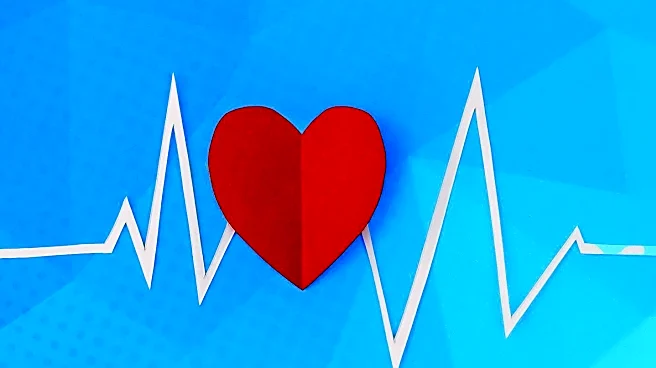What's Happening?
Heart checkups are crucial for detecting cardiovascular issues, especially for individuals with symptoms like shortness of breath, chest discomfort, or palpitations. Various tests such as electrocardiograms (EKG), coronary angiograms, and echocardiograms provide insights into heart function and potential risks. These tests can identify blockages, abnormal heart rhythms, and other conditions that may require immediate intervention. The story highlights the case of Christopher Malin, who avoided a major heart attack due to timely testing and treatment, emphasizing the importance of personalized cardiac assessments.
Why It's Important?
Heart disease is the leading cause of death globally, making early detection and intervention critical. Personalized heart checkups can prevent life-threatening events by identifying risk factors and symptoms early. The availability of advanced diagnostic technologies allows healthcare providers to tailor tests to individual needs, improving outcomes and prolonging life. This approach underscores the importance of communication between patients and healthcare providers in choosing the right tests at the right time.
What's Next?
Individuals with risk factors such as high blood pressure, cholesterol, or a family history of heart disease should consider regular heart checkups. Healthcare providers may recommend lifestyle changes or medications based on test results to reduce heart attack risks. As diagnostic technologies continue to advance, more precise and less invasive tests may become available, further enhancing the ability to detect and treat cardiovascular conditions effectively.









